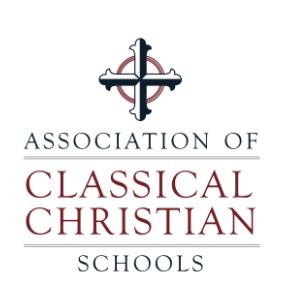About Homescooling
Can Both Working Parents Become a Homeschooling Family?
The real issue is not whether the parents work or not; rather, the question is how much time the parents are willing to devote to their family, and especially to be directly involved in their children’s education. From the amount of time they are prepared to invest in their children, parents must set clear priorities, manage their schedules, and share responsibilities between husband and wife.
Homeschooled Children Live Like They're in a "Glass House Free from Pests and Pollution." How Can They Be Prepared for the Real or "Normal" World?
Children who interact daily with their father, mother, and their parents’ environment are, in fact, already living in the real world from an early age. They witness how their father carries out his work, interacts with colleagues, and faces and solves problems. They observe how their mother manages her time between being a wife, a homemaker, and a household manager—or even see her running a business from home. They also learn from how conflicts within the household are resolved.
Compared to children who spend nearly half their time at school and only see their parents briefly in the morning or just before bedtime, homeschooled children are, in many ways, better prepared to face the real world.
Do Homeschooled Children Study at Home Only with Their Parents? How Can They Socialize with Others, Especially Peers Their Own Age?
If the concern is about socialization, then before children interact with their peers, we as parents must first ask: Is my child prepared to become an individual with self-confidence without constantly comparing themselves to others? Do they have empathy and a willingness to help their friends without being easily manipulated emotionally? Can they be a role model through their speech and good character?
These social skills and qualities cannot be acquired from anywhere unless they are taught and nurtured at home—whether a child is homeschooled or not.
My Husband and I Do Not Have an Educational Background—How Can We Ensure the Success of Our Children's Education?
The Father of Indonesian National Education, Ki Hajar Dewantara, described the aim of education by stating:
"With noble character (budi pekerti), every person stands as a free individual (with personality), capable of governing and mastering themselves. This is what it means to be a civilized human being, and that is the essential goal of education."
In an era where information and knowledge are easily accessible, the most important role of parents is not merely to transfer knowledge, but to instill character, morals, and values—shaping their children to become individuals with integrity and civility. This kind of teaching can only be done at home, by parents, through example and daily life.
My Husband and I Lack the Patience to Teach Our Children, Especially When They Are Disobedient and Rebellious. What Should We Do?
The process of educating children must begin with clear rules, firm supervision, and consistent discipline. Children need to understand that the rules are established by the father, and the mother must agree with and uphold those rules. Both parents must work together to teach and train their children to respect the rules through obedience.
One essential rule that helps children learn to honor authority is teaching them not to rebel (by crying or shouting) and not to speak harshly to their parents—especially when the father and mother are teaching and guiding them.
Apply the principle from Ephesians 6:1–3:
"Children, obey your parents in the Lord, for this is right. ‘Honor your father and mother’—which is the first commandment with a promise—‘so that it may go well with you and that you may enjoy long life on the earth.’"
Only by teaching children to honor and obey their father and mother can they truly learn to honor and obey God.
Should I Homeschool My Children So That They Can Become Geniuses or at Least Smarter Than Their Peers?
If our measure of a child’s success is based on achieving a certain standard, then perhaps the more important question is: Do we truly know our children—not just academically, but also emotionally and spiritually? Before using the term “better,” we must be cautious about the standard we’re applying.
To put it simply, we can draw an analogy from God’s creation: a lion is not considered foolish just because it cannot swim like a whale; nor should we pity the whale for not being able to sprint like a lion; and we shouldn’t think less of the mouse deer simply because it cannot soar like an eagle.
Homeschooling is a parent’s decision to know and nurture their children according to the unique purpose given to them by their Creator—not to compare them with others, but to prepare them to become a blessing to others.
Why Should All Children Be Homeschooled, When Only Certain Children Have Special Needs or Face Specific Challenges?
Parents who choose to homeschool believe that every child is unique—with their own strengths, weaknesses, and potential—that must be nurtured, sharpened, refined, and complemented by their siblings, as well as by their father and mother.
When each family member is separated or chooses to separate in order to find peers or competition elsewhere, the family loses the opportunity to truly see and understand the uniqueness, limitations, and gifts of each member.
The more clearly homeschooling parents recognize a child’s specific needs, the more committed they become to strengthening the family unit—so that it becomes a place where every member is actively involved in building up, supporting, and equipping one another.
Should I Homeschool My Children So That They Become Religious, Love to Pray, Read the Bible, and Obey Their Parents?
The goal of raising religious children should not be to make them blindly obey everything their parents want, nor to make them appear more moral than others.
When religious focus is directed toward obedience to parental expectations or judged by standards of morality, goodness, or correctness based on a specific doctrine or set of rules, we risk forgetting the true heart of faith: to live out the two greatest commandments—“to love the Lord your God with all your heart, with all your soul, and with all your mind,” and “to love your neighbor as yourself” (Matthew 22:37–39).
True faith should point children toward God and toward others, not simply toward rule-keeping or comparison.
If We Homeschool Our Children at Home, Is It Possible for Them to Transfer to a Formal School or Another Institution at a Certain Level?
The National Education System Law in Indonesia allows homeschooled children to transfer to formal schools or other educational institutions, provided they have a National Student Identification Number (Nomor Induk Siswa Nasional/NISN).
However, the process is generally smoother if the children have participated in the official Equivalency Education Program and passed the corresponding national exams:
Paket A, equivalent to Elementary School (SD)
Paket B, equivalent to Junior High School (SMP)
Paket C, equivalent to Senior High School (SMA)
Can Homeschooled Children Compete for Admission to Top Universities in Indonesia or Abroad?
Homeschooling families should, in fact, be among the most confident when it comes to preparing their children for university—because from an early age, they have closely observed their children's potential, talents, and interests.
Homeschooling parents typically begin early to design a personalized roadmap for each child, including structured preparation, disciplined study habits, and clearly defined goals—annually, monthly, weekly, and even daily.
This level of intentionality equips homeschooled students to meet the rigorous demands of university admissions, careers, or professional paths. Unlike many parents who entrust this entire process to educational institutions, homeschooling parents take full responsibility for guiding and preparing their children toward their future.


Frequently asked questions
What Is VCA Semi-Homeschool?
VCA Semi-Homeschool is chosen by homeschooling families who wish to be part of a community with other homeschool families, in order to receive mutual moral support and to learn from those with more experience in homeschooling. Within this community, families follow shared standards in character education, curriculum, and activities established by the group.
For three days a week, children have the opportunity to socialize, to serve and assist younger peers, and to learn to appreciate help from older children.
Younger students, in turn, are taught to respect and value the guidance of their older peers.
Within the VCA Semi-Homeschool community, we also teach children the importance of obeying and honoring authority—specifically their teachers and VCA staff—and to show gratitude and respect toward those whom God has placed as their authority and protectors.
Is VCA Affiliated with a Particular Denomination, and Can Homeschool Families of Other Religions Join the VCA Community and Enroll Their Children?
VCA is a community that welcomes all homeschooling parents from various denominations, religions, beliefs, and cultural or ethnic backgrounds—provided that they do not oppose VCA’s vision and are committed to upholding it.
Parents must also agree with and carry out the mission and responsibilities of homeschooling as defined by VCA.
If VCA Only Requires Children to Attend and Allows Accompaniment for Three Days, What Should Parents and Children Do on the Remaining Days at Home?
This question often comes from families who may not yet fully understand what homeschooling truly means.
Joining the VCA semi-homeschool community does not mean that the family and child are only homeschooling for three days a week. The activities provided by VCA—whether online or in person—are meant to be just a small part of the broader educational plan that each homeschooling parent should design for their child.
The remaining days are not considered free days or holidays. In fact, those three home-based days are essential. They provide the opportunity for parents to actively teach, train, and instill discipline in their children—especially in developing independent learning habits.
These days also allow parents to enrich their children's education with additional activities tailored to their gifts, talents, and potential, all under the full supervision and guidance of the parents.
After Attending the Three-Day VCA Semi-Homeschool Program, Are Parents Allowed to Hire Tutors to Help Their Children with Schoolwork?
VCA Semi-Homeschool does not permit parents to delegate their role in guiding and training their children, especially in completing assignments given by teachers to be done at home.
Tutors may only assist students in deepening subjects that are already their strengths—and only after the students have completed the assignments independently.
Parents are also expected to help sharpen their children’s talents in areas such as sports, the arts, Indonesian language, foreign languages, and other practical skills like cooking, gardening, and caring for animals.
Why Does VCA Semi-Homeschool Use an American Curriculum and English as the Language of Instruction?
VCA Semi-Homeschool is a homeschool community that offers one of the most family-friendly and accessible curricula for both parents and children. The use of an American-based curriculum is rooted in the history of the United States, which began around 1620, when approximately 120 people courageously left their home countries in Europe in search of a new land where their families could freely worship God and raise their children to become a generation who lives in reverence of Him.
In addition to learning the Indonesian language, students in the VCA Semi-Homeschool community are also required to read literature written by authors from the 15th and 16th centuries—during the Eu
Why Does VCA Semi-Homeschool Use a Classical Curriculum and Read European Literature, and How Has This Revival and Reformation Influenced Human History Globally?
VCA Semi-Homeschool adopts a classical curriculum that explores the story of human civilization, with a strong focus on the Renaissance period in Europe, as well as the eras before and after it. The Renaissance emerged as a response to widespread disease, economic crisis, political instability, and the intellectual stagnation of the so-called "Dark Ages."
Literally meaning “rebirth” in French, the Renaissance was a period that marked the revival of European civilization and culture. This era was characterized by a renewed appreciation for ethics, aesthetics, and rational thinking.
The crisis of the Dark Ages had been largely caused by the suppression of free thought, political participation, and social interaction under the strict doctrines imposed by the institutional church at that time. The Renaissance broke through these limitations and laid the foundation for scientific inquiry, artistic expression, and humanistic values that have since shaped the course of global history.
By studying classical literature and the historical movements that shaped the modern world, VCA students are encouraged to develop a deep understanding of truth, beauty, and virtue—values that transcend time and culture.
Is It True That the Classical Curriculum at VCA Emphasizes the Humanities More Than Mathematics and Science?
The Classical Christian curriculum implemented at VCA is designed to equip students with critical thinking skills, sharp reasoning abilities, and a clear focus on discerning God's calling and purpose for their lives.
In today’s world, where access to knowledge and fields of study is abundant and easily accessible, it is essential to first build a strong foundation in understanding one’s life purpose. Each student will eventually choose their own academic path and determine how best to prepare for it.
With intentional preparation and parental guidance, several of our students have successfully graduated from Grade 12 at VCA and gone on to study in faculties such as Architecture and Medicine. Others have pursued the IGCSE track in order to attend international universities, selecting majors in Microbiology and other science-related fields.
Frequently asked questions
Apa artinya dan perbedaan dari VCA Online dan Offline?
VCA Offline diperuntukkan anak-anak dari anggota keluarga anggota komunitas VCA yang mengantar anak-anaknya ke sekolah 3 hari dalam seminggu, dan mengikuti pelajaran tatap muka, dan mengikuti semua mata pelajaran yang ditetapkan dan diwajibkan oleh VCA.
VCA Online diperuntukan bagi :
anak-anak dari anggota komunitas VCA yang:
mengikuti semua mata pelajaran yang ditetapkan oleh VCA sebagai kewajiban untuk mendapatkan Report Card yang lengkap dan Certificate of Completion, atau
murid yang orangtuanya merancang sendiri program pembelajaran sesuai persiapan khusus, dan mengambil hanya beberapa pelajaran tertentu di VCA online.
VCA online juga diperuntukkan bagi murid yang orang tuanya bukan menjadi bagian dari anggota keluarga.
anak dari orangtua yang melakukan homeschool terhadap anak-anak mereka dan yang orangtuanya merancang sendiri program pembelajaran anak, sesuai persiapan khusus, dan mengambil hanya beberapa pelajaran tertentu di VCA;
murid dari sekolah lain yang merancang sendiri program pembelajaran sesuai persiapan khusus dan mengambil hanya beberapa pelajaran tertentu di VCA online.
Apa perbedaan dari VCA online untuk anak-anak dari anggota komunitas VCA, dan anak-anak dari orangtua yang melakukan homeschool mandiri terhadap anak-anaknya dengan program khusus, dan murid-murid sekolah lain yang mempunyai program tersendiri di sekolahnya?
Murid-murid dari orangtua anggota komunitas VCA yang memilih VCA Online (a) dapat mengganti program ke offline setiap quarter, atau setiap semester, atau setiap tahun; sesuai dengan pemberitahuan minimal 1 bulan sebelumnya; (b) dapat mengikuti pelajaran dengan cara hybrid real time atau datang ke kelas offline pada pelajaran tertentu, pada hari tertentu, yang sesuai dengan pilihan program yang sudah ditetapkan oleh orangtua dengan syarat memberitahukan kepada Form Teachers dan Administrator 2 (dua) hari sebelumnya; (c) akan mendapatkan rekaman dari setiap kelas yang diambil.
Kategori ke (2) dan (3) sebagaimana diuraikan di Pertanyaan Nomor 17, murid hanya dapat mengikuti pelajaran secara hybrid real time atau mendapatkan rekaman dari pelajaran yang dipilih; dan tidak dapat mengikuti pelajaran di dalam kelas offline. Semua murid online akan mempunyai waktu bertemu dengan guru dan administrator untuk Quiz dan Test atau berkonsultasi dengan guru mata pelajaran, hanya pada hari dan jam yang ditentukan, oleh administrator.
Yang dimaksud dengan “self-paced” Offline?
Dengan proses belajar sesuai dengan kemampuan masing2, VCA Off-line membagi kelas melalui pengelompokkan sebagai berikut:
- Grade 1 dan Grade 2-3 Non-Reguler;
- Grade 2-3 Reguler;
- Grade 4 dan Grade 5-6 Non-Reguler;
- Grade 5 & 6 Reguler;
- Grade 7 dan Grade8-9 Non-Reguler;
- Grade 8-9 Reguler;
- Grade 10 & Grade 11-12 Non-Reguler;
- Grade 11-12 Reguler.
Pengelompokkan dapat dibagi lagi menjadi Non-Reguler A dan B atau Reguler A dan B, sesuai dengan kapasitas yang tersedia, sehingga kami tetap dapat mempertahankan ratio guru dan murid dan memenuhi setiap kebutuhan murid secara maksimal, dengan perhatian yang cukup dari guru pengajar, pengawas dan Form Teacher masing-masing.
Tujuan pembagian dalam kelompok diatas adalah untuk membangun dasar yang kuat bagi setiap murid sehingga dapat mencapai tujuan akhir pendidikan yaitu :
- Kemampuan fokus untuk menyerap apa yang didengar, dilihat dan diamati;
- Kemampuan mengungkapkan keingintahuan yang besar;
- Ketajaman berpikir kritis dan menganalisa masalah dari berbagai sudut pandang;
- Kemampuan membuat catatan dan ringkasan, dan merangkaikan dalam tulisan yang dapat dipresentasikan dengan lugas dalam penerapan untuk menyelesaikan berbagai masalah yang dihadapi.
Kemampuan memimpin akan dibangun melalui tantangan untuk menjadi “team player”, pemimpin yang mempunyai hati melayani dan menjadi pendengar yang memberi solusi yang bijaksana.




